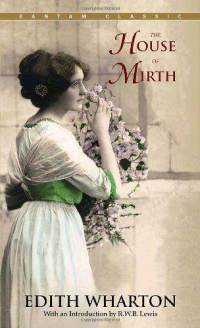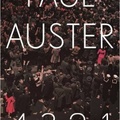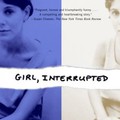Edith Wharton: The House of Mirth

The novel is set at the end of the 19th century and it deals with the life of the New York elite. The protagonist is Lily Bart, the most fabulous beauty in the aristocratic class. She has no remarkable fortune but she comes from a good family so she is more than welcome everywhere and she can live a comfortable life spending a few weeks or months in the home of one of her friends before moving on to another one. Of course she also has her future to think of – at the beginning of the story she is already 29 years old and there’s a chance that society will sooner or later get tired of her and her beauty, therefore Lily is making plans to marry the first suitable rich man who asks her. Catching a good husband doesn’t seem too difficult since Lily is the master of artful behavior and she can always determine after a single glance how best to approach and tempt any man. However, at one point early in the story she makes an ever so slight mistake, and a single mistake is enough in the pretentious world she lives in to tarnish her reputation, perhaps forever – and without a good reputation a woman like Lily is no-one and nothing.
Edith Wharton does a very convincing job depicting the suffocating atmosphere of the aristocratic New York society – an atmosphere made all the more choking because the elite appears to live a wonderfully free and even lewd life. For instance, divorce isn’t frowned upon anymore, not even among the highest-ranking members of society (only those belonging to the older generations still consider it something immoral); those who are still married to their spouses don’t take pains to hide their casual extra-marital love affairs; no-one considers it outrageous if a woman smokes; and nobody bothers to take a second look if they see a lone woman traveling on a train.
Despite all appearances, however, this society follows several strict, elaborate but mostly unwritten rules, and it’s enough to break one of them to enter a downward spiral and finally end up expelled from good society. No wonder then that people (especially ladies) of fashion take good care never to break the rules and all they ever do is based upon a careful assessment of whether it’s socially acceptable or not.
Lily is the true child of her age and world, but I don’t find her disagreeable or repulsive. Of course – you may say she’s nothing more than a shallow, fashion-loving, empty-headed, manipulative, money-grabbing little bitch, but I still feel compassion for her because she has some incomprehensible, deep emotions hidden in her soul, and she longs for a life with more meaning to it – only she’s not strong enough to change her habits and really strive for this „more real” life. As she admits at one point towards the end of the novel, all her girlhood she was taught to desire what’s beautiful and elegant, she was taught not to accept less than this, and all she was trained for was to be beautiful and fill the role of a nice ornament in a room. Lily would have been perfect in this role (though she would probably have felt that something had been missing from her life), but I’ve got a feeling that it was not an accident that she postponed marriage until it turned out to be too late – I feel that her money-grabbing attitude arising from her all-encompassing desire to live a life of luxury was never enough motivation for her to accept any of her rich and shallow suitors, because deep down she wished for a „real”, meaningful marriage based on equality, only she could never admit this and could never do anything to make this wish come true. The only time she allowed herself to entertain such ideas was during her greatest emotional turbulences – and she always made sure to calm herself down quickly.
Edith Wharton for me is like Theodore Dreiser and F. Scott Fitzgerald rolled into one. She writes about the unshakable conventions of society, the defenselessness of those with no money (against others, and against their own upbringing and desires), and the immense difficulty or even impossibility to change one’s circumstances, and she writes in such a realistic and cruelly honest way as Dreiser does in An American Tragedy or Frank Norris in McTeague. But at the same time she writes with such beauty, compassion and sensitivity about her characters’ suppressed emotions, vague attempts to change and indefinite hopes that when I’m reading her books I almost feel as if I was reading Fitzgerald’s Tender is the Night.
And whenever I read her novels, I’m furious and very sad at the same time, and I pity everyone she writes about, even those who don’t seem to deserve any pity at all.
Edith Wharton does a very convincing job depicting the suffocating atmosphere of the aristocratic New York society – an atmosphere made all the more choking because the elite appears to live a wonderfully free and even lewd life. For instance, divorce isn’t frowned upon anymore, not even among the highest-ranking members of society (only those belonging to the older generations still consider it something immoral); those who are still married to their spouses don’t take pains to hide their casual extra-marital love affairs; no-one considers it outrageous if a woman smokes; and nobody bothers to take a second look if they see a lone woman traveling on a train.
Despite all appearances, however, this society follows several strict, elaborate but mostly unwritten rules, and it’s enough to break one of them to enter a downward spiral and finally end up expelled from good society. No wonder then that people (especially ladies) of fashion take good care never to break the rules and all they ever do is based upon a careful assessment of whether it’s socially acceptable or not.
Lily is the true child of her age and world, but I don’t find her disagreeable or repulsive. Of course – you may say she’s nothing more than a shallow, fashion-loving, empty-headed, manipulative, money-grabbing little bitch, but I still feel compassion for her because she has some incomprehensible, deep emotions hidden in her soul, and she longs for a life with more meaning to it – only she’s not strong enough to change her habits and really strive for this „more real” life. As she admits at one point towards the end of the novel, all her girlhood she was taught to desire what’s beautiful and elegant, she was taught not to accept less than this, and all she was trained for was to be beautiful and fill the role of a nice ornament in a room. Lily would have been perfect in this role (though she would probably have felt that something had been missing from her life), but I’ve got a feeling that it was not an accident that she postponed marriage until it turned out to be too late – I feel that her money-grabbing attitude arising from her all-encompassing desire to live a life of luxury was never enough motivation for her to accept any of her rich and shallow suitors, because deep down she wished for a „real”, meaningful marriage based on equality, only she could never admit this and could never do anything to make this wish come true. The only time she allowed herself to entertain such ideas was during her greatest emotional turbulences – and she always made sure to calm herself down quickly.
Edith Wharton for me is like Theodore Dreiser and F. Scott Fitzgerald rolled into one. She writes about the unshakable conventions of society, the defenselessness of those with no money (against others, and against their own upbringing and desires), and the immense difficulty or even impossibility to change one’s circumstances, and she writes in such a realistic and cruelly honest way as Dreiser does in An American Tragedy or Frank Norris in McTeague. But at the same time she writes with such beauty, compassion and sensitivity about her characters’ suppressed emotions, vague attempts to change and indefinite hopes that when I’m reading her books I almost feel as if I was reading Fitzgerald’s Tender is the Night.
And whenever I read her novels, I’m furious and very sad at the same time, and I pity everyone she writes about, even those who don’t seem to deserve any pity at all.





